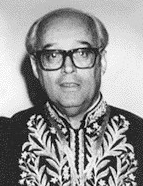

The metaphysics of latifundia: the ultra-reactionary Oliveira Viana] (São Paulo, Companhia Editora Nacional, 1988), a continuation of the 1979 work, and continuing with texts organised and edited by Lêda Boechat Rodrigues, to whom he was married for 46 years: Ensaios livres [Free essays] (São Paulo, Imaginário, 1991); and, co-authored with Ricardo Seitenfus, Uma história diplomática do Brasil [A diplomatic history of Brazil], 1531-1945 (Rio de Janeiro, Civilização Brasileira, 1995).
A prolific historian who was extremely productive, although at times also quite repetitive, José Honório Rodrigues wrote many short articles and lectures that gave shape to ideas and empirical material that were eventually turned into books. He revised his texts with each new edition, introducing numerous changes in each new edition, though without significantly changing his central theses, which were shaped by his own perspectives on politics, history, Brazil, and the world at large. Preliminarily, he can be characterised as an engaged intellectual, fighting against what he considered a "conservative tradition" in Brazilian thought, including historical thought. In his early years as a historian—like many intellectuals and writers of the time—he was a critic of the Estado Novo (1937-1945), the authoritarian regime established in Brazil through a coup led by Getúlio Vargas, which severely curtailed individual freedoms. Later, he became a kind of liberal nationalist, advocating for what he considered to be the national and strategic interests of Brazilian society, in line with the policies put in place by the Brazilian presidential government of Juscelino Kubitschek (1956-1961). After the coup that established a dictatorship in 1964, Rodrigues became a critic of the regime, which he saw as a form of "presidential generalism". However, and despite many criticisms of the Brazilian military governments (such as their passive and extreme submission to the United States in foreign policy matters, to which he countered with a proposal to prioritise relations with African countries and Communist China), Rodrigues insisted on seeing the Brazilian Armed Forces as a patriotic institution that historically guaranteed legitimate national interests (in fact, until 1969 he received invitations to work at the Escola Superior de Guerra ).
This work is financed by national funds through FCT - Foundation for Science and Technology, I.P, in the scope of the projects UIDB/04311/2020 and UIDP/04311/2020.
